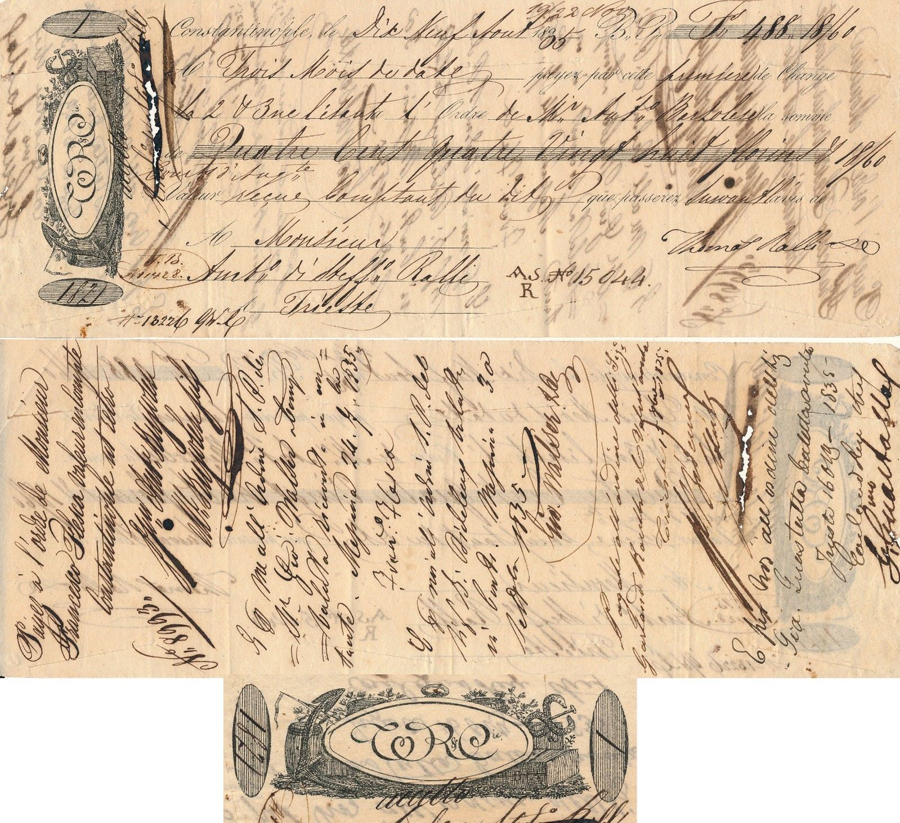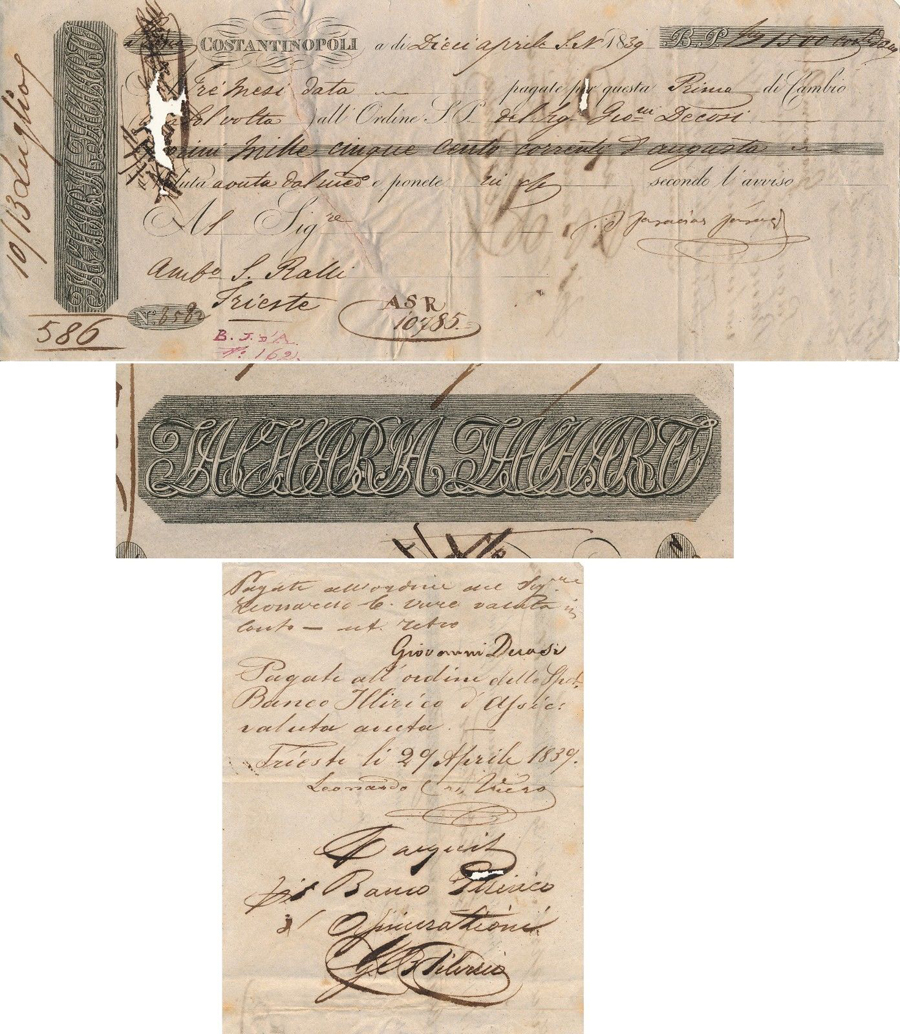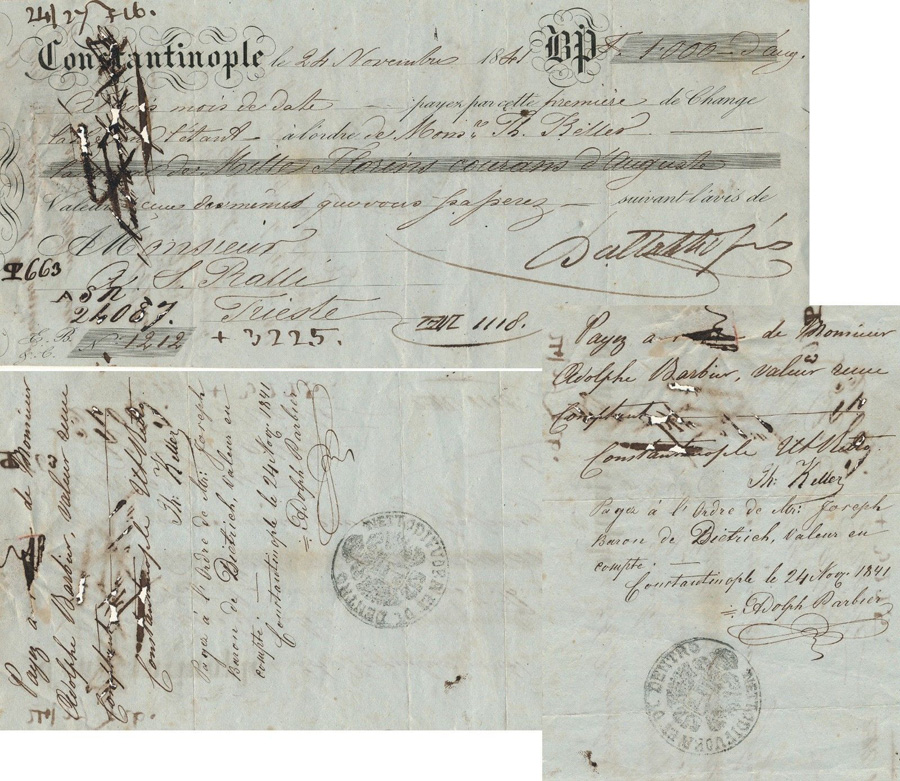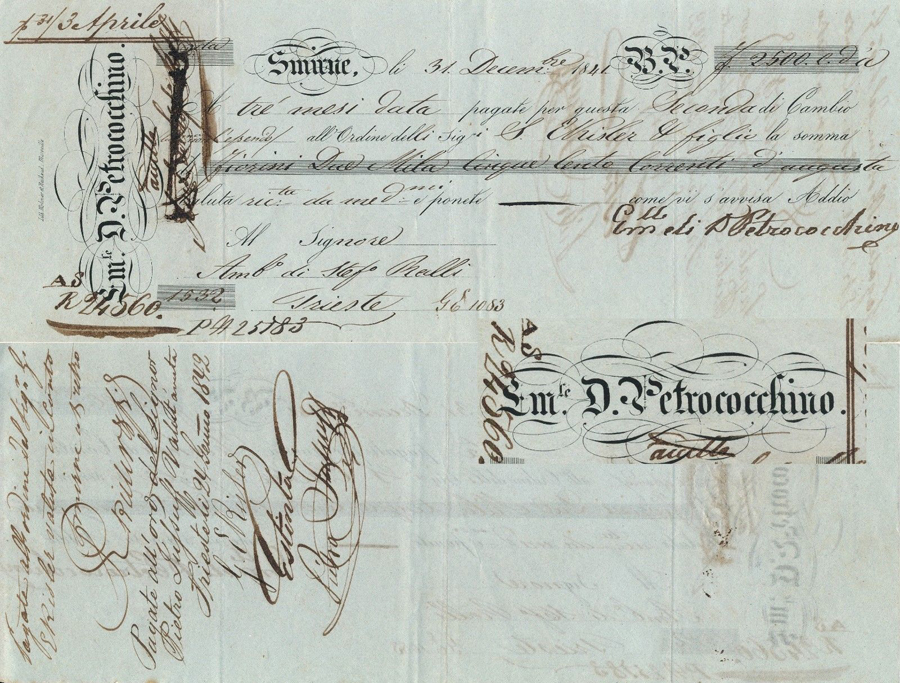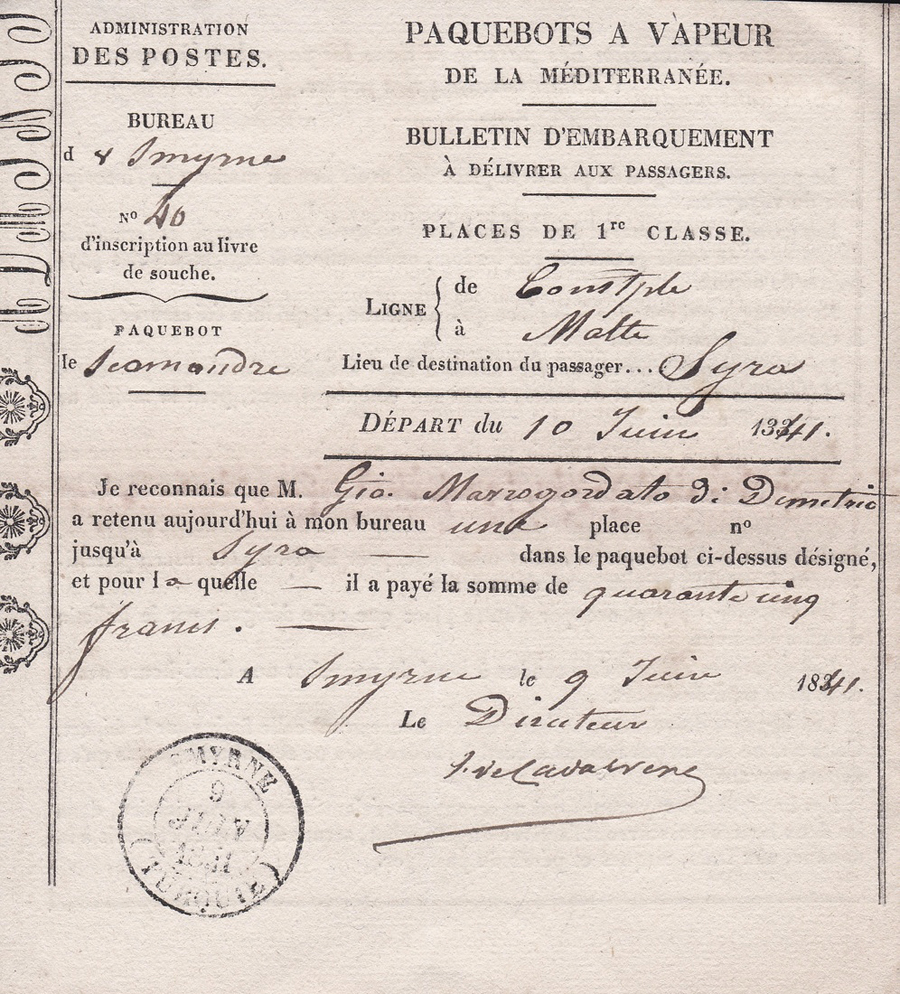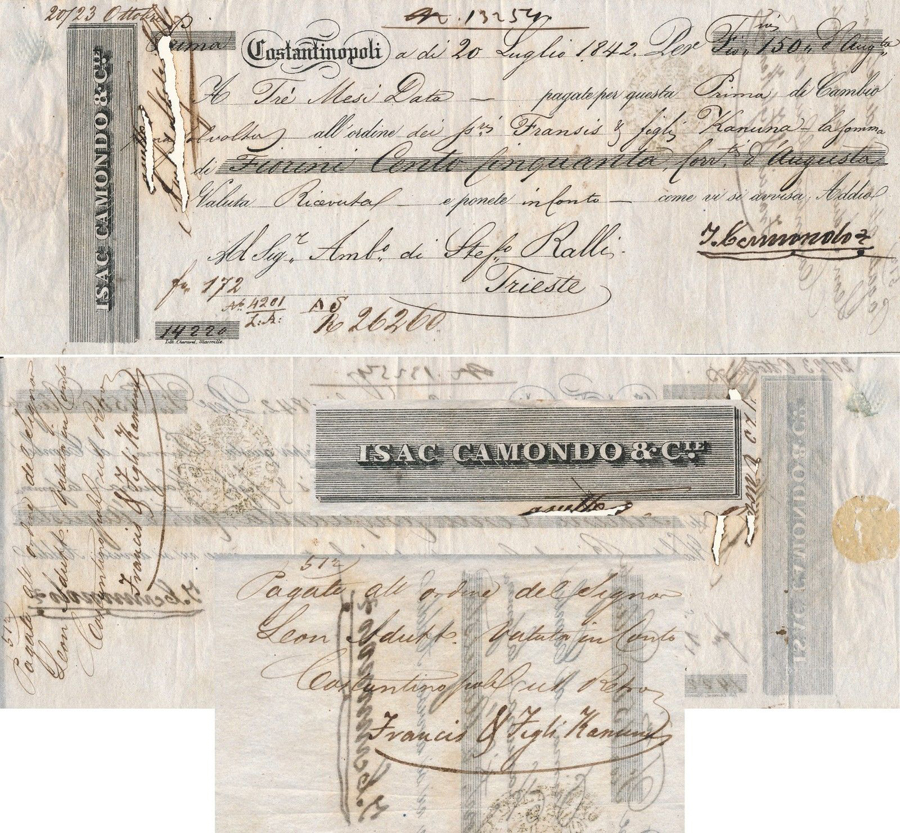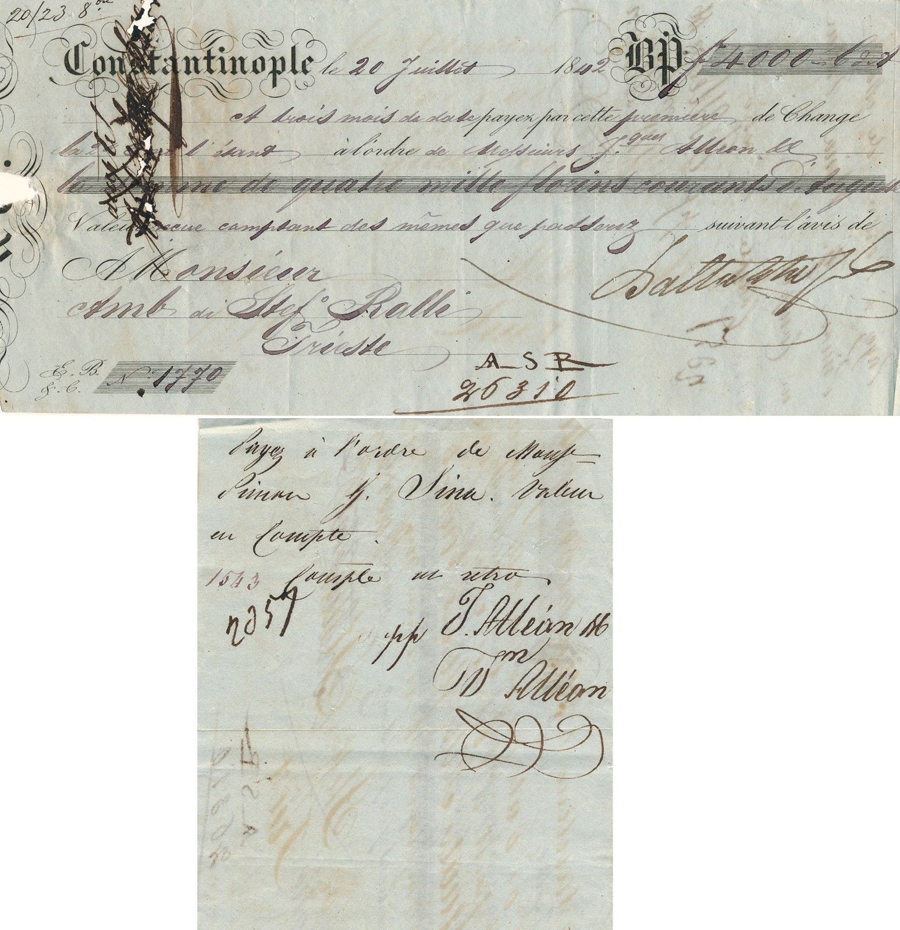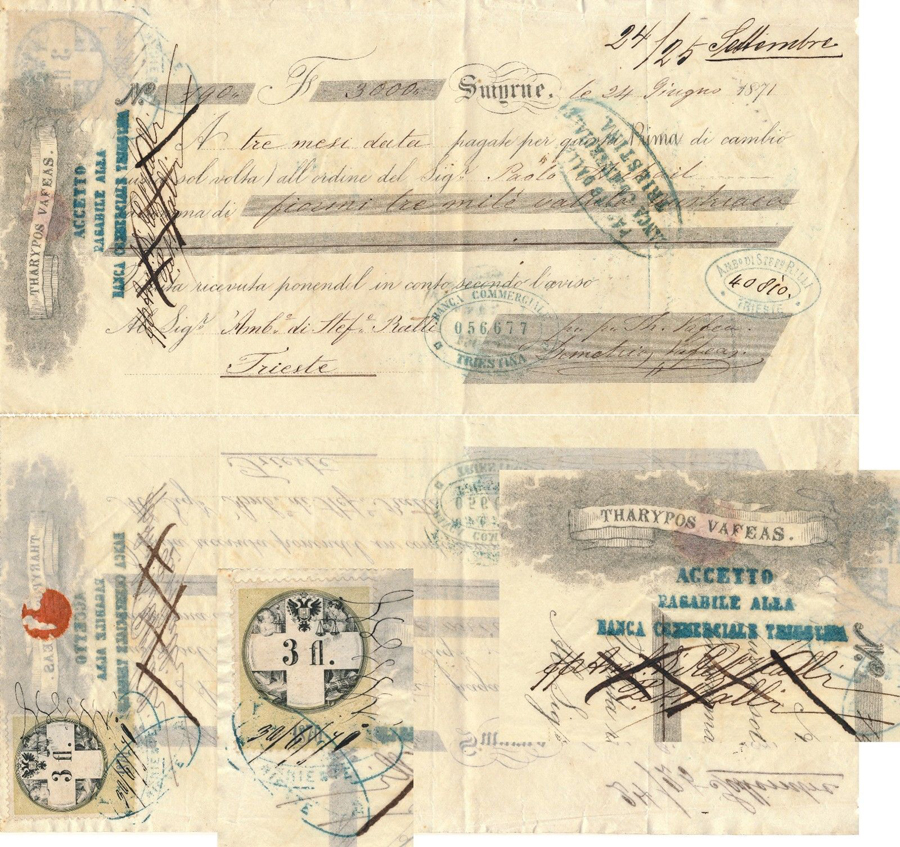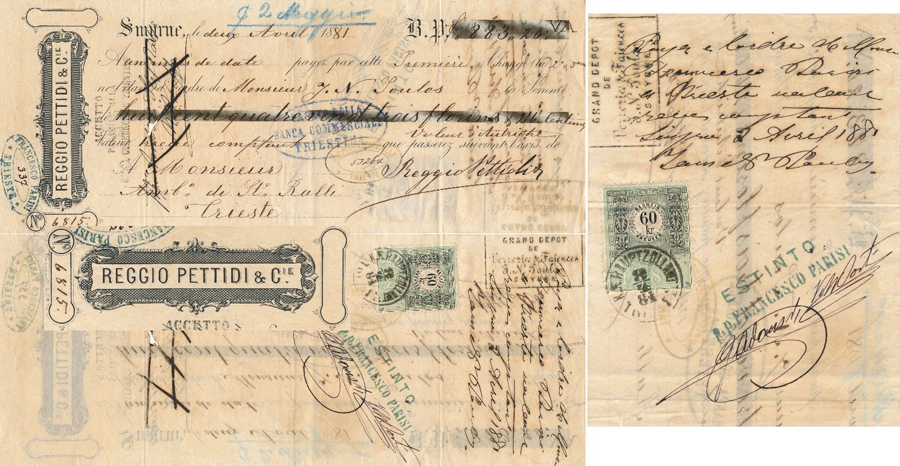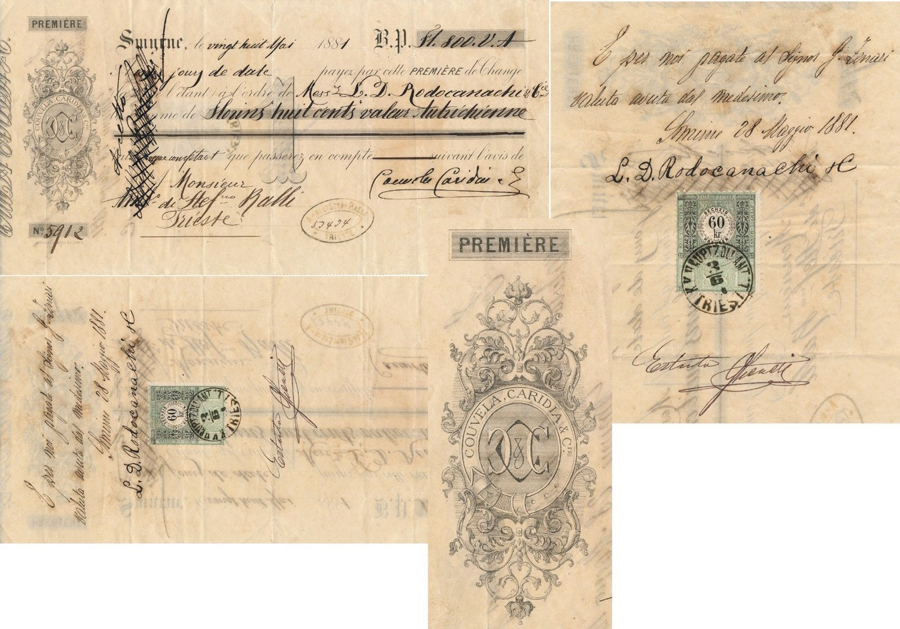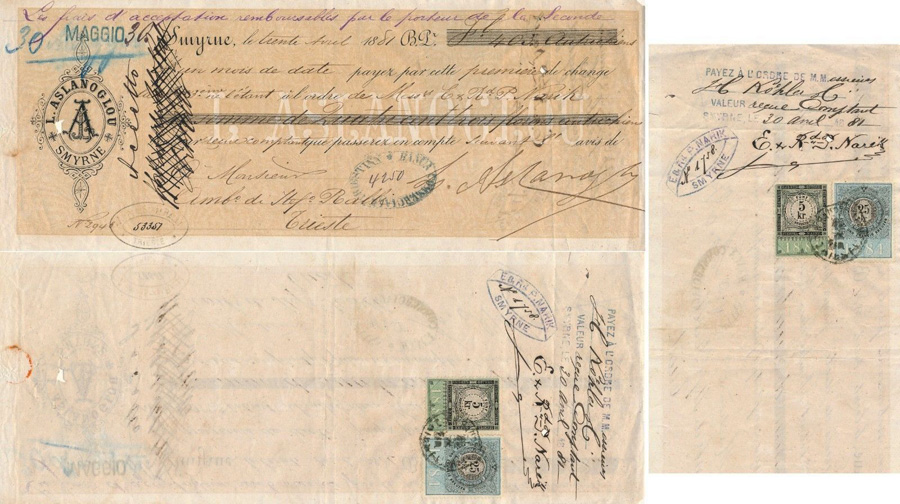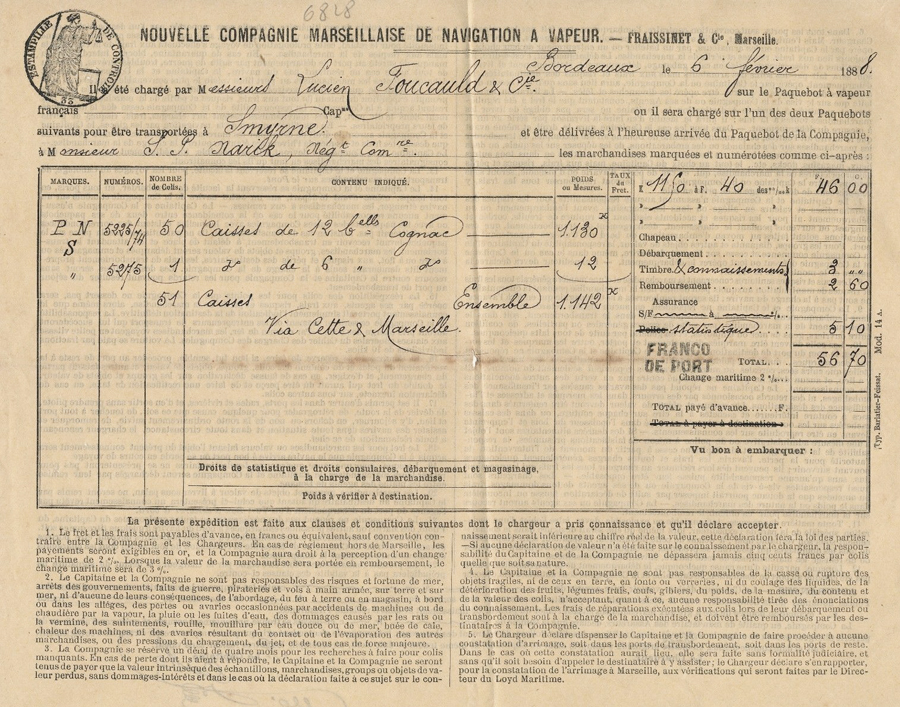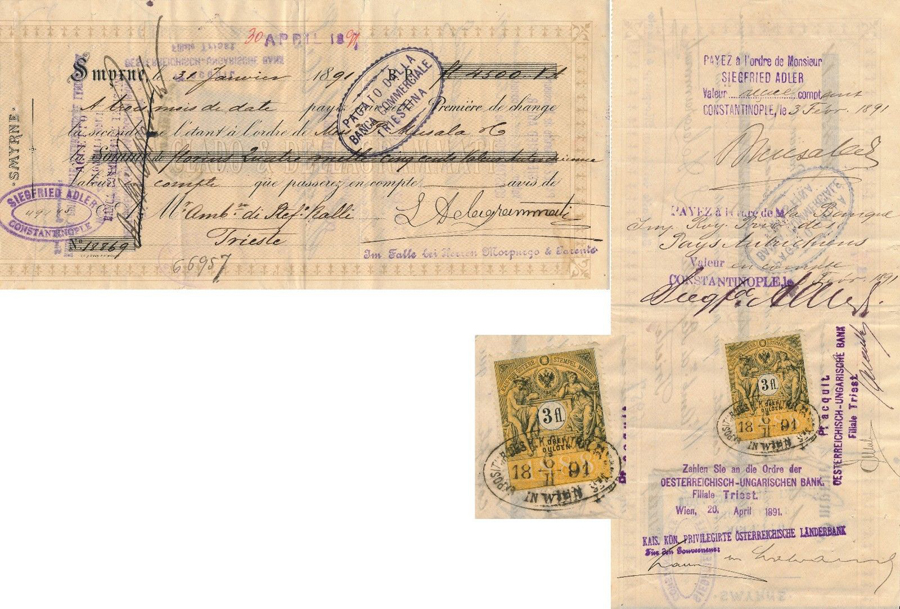
Ephemera
Bills of Exchange
A bill of exchange is a written order used primarily in international trade that binds one party to pay a fixed sum of money to another party on demand or at a predetermined date.
Bills of exchange are similar to checks and promissory notes. They can be drawn by individuals or banks and are generally transferable by endorsements. The difference between a promissory note and a bill of exchange is that the latter is transferable and can bind one party to pay a third party that was not involved in its creation. They allow to get a sense of who were the major traders in the past and the various trade hubs like Trieste which developed as a major entrepôt for goods entering Southern Europe.
Bill of exchange of an export from Constantinople of 19/22 November 1835, asking for payment 3 months hence by the order of Mr Bertolese the sum of 488 Florins, which was received and the goods conveyed to the Ralli Company of Trieste, signed by Thomas Ralli. The bill below that, from the same year, exported again from Constantinople and payment requested by the merchant Francesco Flesca, again conveyed to Trieste to Lucas Galetta.
Bill of exchange of an export from Constantinople 29 April 1839, between Giovani Decosi (?) and Ambrossios S. Ralli of Trieste.
Bill of exchange to the value of 1,000 Florins from Constantinople dated 24 November 1841 between Th. Kelles (?) and A.S. Ralli of Trieste. This appears to be a complex transaction with intermediate Levantine merchants to be paid named as Adolphe Barbier and Joseph Baron de Dietrich.
Bill of exchange for an export from Smyrna dated 31 December 1841 between Emanuel Petrochocchino and the Ralli Company in Trieste.
Following information courtesy of Dimitri Petrocochino, 2018:
Emm. D. Petrocochino indicated should be (Chios 1789-Smyrna 1860), son of Dimitrios, used as a middle initial. During the 1822 Chios Massacre his father, uncle and elder brother were held hostage along with about 70 other notables in the Chios Castle dungeon. When his uncle and one other died in the dungeon, it was decided to exchange the hostages with an equal number. He then managed to escape to Smyrna, and from there probably went to Livorno (Leghorn), where his Rodocanachi uncles where established. His first three daughters were born there, the next one in Constantinople, and finally a son in Smyrna, in 1840. The Ambrose Ralli he dealt with in Trieste was his cousin, Ambrose’s wife descending from Emmanuel’s mother’s brother. That’s how the Chiot merchant network worked, and marriages followed suit. Below is his portrait, found by Phillip Argenti in London and presented to my great grandfather.
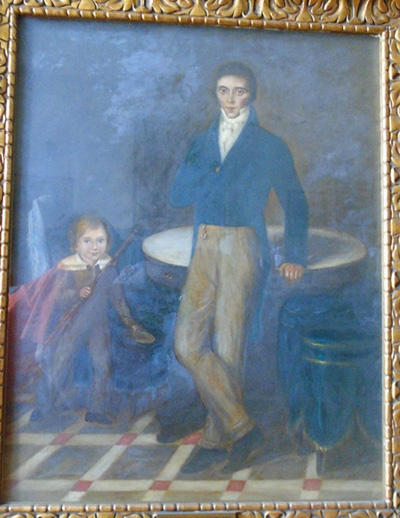
A different type of a maritime document from that era: An embarkation document for Giovanni Mavrogordato, a passenger on a postal steam-boat named Scamandre (?) on 10th June 1841 from Constantinople to Syra, who paid 45 Francs for this service, with the conditions of passage indicated on the reverse.
Bill of exchange for an export from Constantinople dated 1842 between Isac Camondo Company and the Ralli Company in Trieste.
Bill of exchange for an export from Constantinople dated 1842 between J. Alléon and the Ralli Company in Trieste.
Bill of exchange for an export from Smyrna dated 1871 between Paolo Machail (?) and the Ralli Company in Trieste.
Bill of exchange for an export from Smyrna dated April 1881 between J.N. Poulos acting on behalf of the Reggio Pettidi Company and the Ralli Company in Trieste, acting on behalf of Fraancesco Parisi.
Bill of exchange for an export from Smyrna dated May 1881 between L.D. Rodocanati and Stefano Ralli of Trieste.
Bill of exchange for an export from Smyrna dated April 1881 between Messr E. & R.P. Narik acting on behalf of L. Aslanoglou of Smyrna and the Ralli Company in Trieste with a revenue document of a sale to J.C. Köhler & Co.
A different document, a Bill of landing for an export from Bordeaux dated 6 February 1888 between the exporter Lucien Foucauld and Co. and the importer in Smyrna S.P. Narik (?) for a consignment of brandy conveyed by Nouvelle Compagnie Marseillaise de Navigation a Vapeur charging a total 56.70 Franks (?) paid prior to shipment.
Bill of exchange for an export from Smyrna dated 31 January 1891 for 4,500 florins with a 3 months payment period granted by P. Musala (?) to the Ralli Company in Trieste. These goods appear to have gone via Constantinople as the attached bill of exchange second conveyance of these goods is between the same merchant and acting conveying company Siegfried Adler.
-

